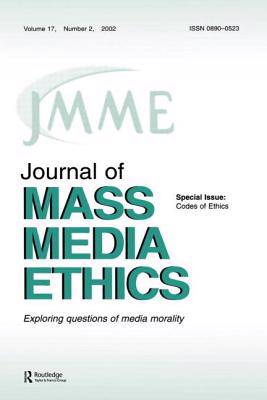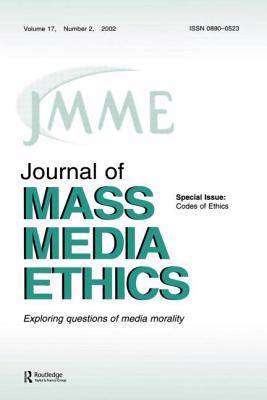
- Afhalen na 1 uur in een winkel met voorraad
- Gratis thuislevering in België vanaf € 30
- Ruim aanbod met 7 miljoen producten
- Afhalen na 1 uur in een winkel met voorraad
- Gratis thuislevering in België vanaf € 30
- Ruim aanbod met 7 miljoen producten
Zoeken
€ 85,45
+ 170 punten
Omschrijving
Revisiting the topic of ethics codes in the media, this special issue begins by tracing the first 50 years of code writing and code enforcement experiences of the Public Relations Society of America (PRSA). The second article shows how the 2000 Member Code of Ethics assumes professional standing for PRSA members, emphasizes public relations' advocacy role, and stresses education rather than enforcement as the key to improving industry standards. Next, this special issue traces the evolution of the Israel Broadcasting Authority's (IBA) code of ethics through five permutations between 1972 and 1998 and analyzes how journalistic codes of ethics in the United States wrestle with the matter of leaks. The Cases and Commentaries section explores the ethical ramifications of a public relations practitioner's decision about presenting a false front group of grassroots image as a part of a public relations campaign. Finally, two book reviews stimulate further thought about entertainment media ethics and ethics in cyberspace.
Specificaties
Betrokkenen
- Auteur(s):
- Uitgeverij:
Inhoud
- Aantal bladzijden:
- 106
- Taal:
- Engels
- Reeks:
Eigenschappen
- Productcode (EAN):
- 9780805896213
- Verschijningsdatum:
- 1/11/2002
- Uitvoering:
- Paperback
- Formaat:
- Trade paperback (VS)
- Afmetingen:
- 152 mm x 229 mm
- Gewicht:
- 154 g

Alleen bij Standaard Boekhandel
+ 170 punten op je klantenkaart van Standaard Boekhandel
Beoordelingen
We publiceren alleen reviews die voldoen aan de voorwaarden voor reviews. Bekijk onze voorwaarden voor reviews.







